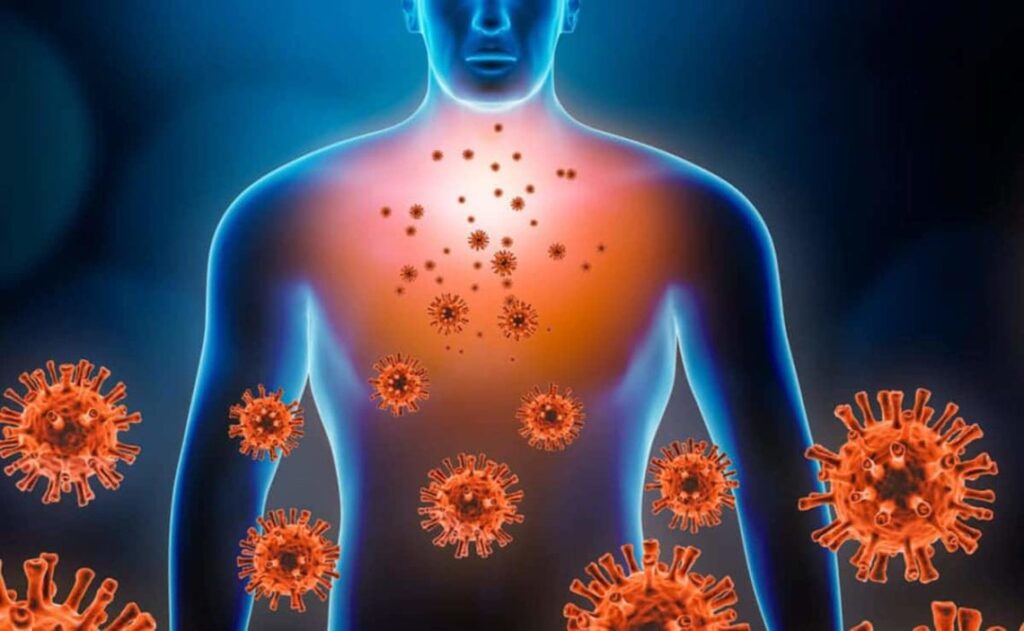Many people are implementing additional safety measures in the wake of the recent COVID-19 omicron variant to stay healthy and support their immune system.
The virus can be stopped from spreading by washing hands for 20 seconds and using social distance. However, it’s also crucial to have a robust immune system that can defend you from any potential infections. It might be a sign that your immune system is compromised if you’ve noticed that you get sick frequently, feel exhausted, or experience other troubling symptoms.
Examine the warning signs and the things you can do to strengthen your immune system.
Immune System Weakness Warning Signs
-
You’re incredibly stressed out
You frequently become ill following a significant project at work or a stressful event at home, and this is not a coincidence.
Long-term stress reportedly makes your immune system less responsive, according to a report by the American Psychological Association.
“Stress lowers the body’s lymphocytes, which are white blood cells that aid in the fight against infection. The greater your risk for viruses like the common cold, the lower your lymphocyte levels are,
-
You Constantly Catch a Cold
Adults who sneeze and cough their way through two or three colds a year are perfectly normal. The majority of people recover in seven to ten days.
The immune system needs three to four days to produce antibodies and ward off bothersome germs during that time.
But if you frequently get colds or have a cold that won’t go away, that’s a telltale sign that your immune system is under stress.
-
You Experience a Lot of Stomach Issues
Constipation, gas, or diarrhea on a regular basis may indicate that your immune system is weak.
According to research, your digestive tract houses nearly 70% of your immune system. The good bacteria and microbes that occupy your gut protect it from disease and strengthen the immune system.
You may be more susceptible to viruses, ongoing inflammation, and even autoimmune diseases if you have low levels of these beneficial gut bacteria.
-
Your Injuries Take Longer to Heal
After a burn, cut, or scrape, your skin enters damage control mode. By delivering nutrient-rich blood to the wound to aid in the regeneration of new skin, your body works to protect the wound.
Healthy immune cells are necessary for this healing process. However, your skin cannot regenerate if your immune system is unreliable. Instead, your injuries linger and are difficult to heal.
-
You Frequently Get Ill
Your immune system may be raising concerns if you consistently struggle with infections.
The following are indications of a potential immune deficiency in adults, according to the American Academy of Allergy, Asthma, & Immunology:
- greater than four ear infections in a calendar year
- having two episodes of pneumonia in a year
- having chronic sinusitis or experiencing more than three bouts of bacterial sinusitis each year
- requiring more than two antibiotic courses per year
-
You Constantly Feel Tired
You are aware that exerting yourself to the fullest will inevitably make you drained. But it’s worth wondering if your immune system is trying to tell you something if you’re getting enough sleep but are still feeling exhausted.
Your energy level also decreases when your immune system is under stress.
Your body is attempting to conserve energy to power your immune system so it can combat pathogens, which is why.
CONCLUSION
If any of the aforementioned warning signs sound familiar to you, your immune system requires extra care. Your immunity can be kept strong and healthy naturally with a few simple lifestyle adjustments and new routines:
- Consume a healthy diet.
- Obtain enough rest.
- Regular exercise
- Clean your hands.
- uphold your vaccination schedule
- Keep a healthy weight.
- Avoid smoking
- Try to reduce your stress.
Your immune system is the most important factor in determining your overall health, and the more you can do to safeguard it, the better.

